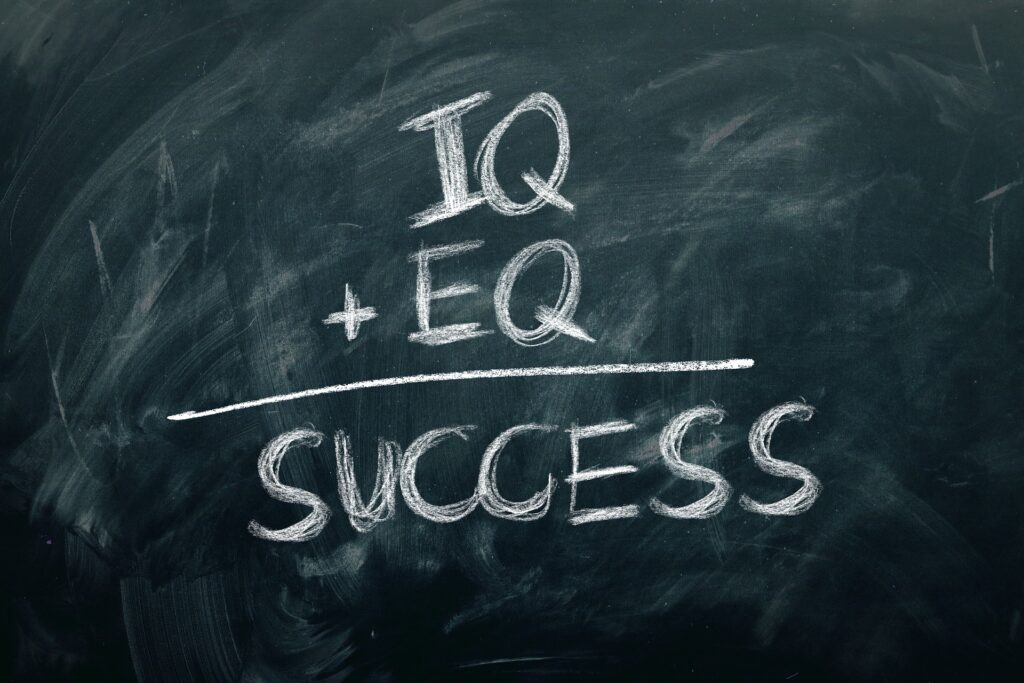What is Emotional Intelligence?
Emotional intelligence is the ability of a person to identify, understand, use and manage his own emotions in a positive and advantageous manner to relieve stress, empathize with others, maintain effective communication and overcome challenges positively. Due to the complexity of business activities in the modern business world, the employees have to go through many changes and challenges often in their careers. It is important for them to build emotional intelligence in order to face challenging situations successfully without creating an impact on their personal or professional life.
Business emotional intelligence is a practical, work-based approach to the concept of emotional intelligence that is very helpful for individuals as well as teams to understand each other’s behavior, improve engagement and maximize productivity.
Business emotional intelligence or the business EQ is related to the individuals’ ability to use their interpersonal and intrapersonal intelligence to identify the critical emotions of themselves as well as others. Apart from that, business EQ is about understanding the behavioral traits related to the critical emotions that will help to improve business performance.
The main point in building business EQ is constructing self-awareness as well as awareness about others. It helps to identify the peoples’ capabilities to manage and control their emotional behaviors at the workplace and the effects of the emotions on their capabilities, potential, and performance.
Components of Emotional Intelligence
Self-awareness
Self-awareness is the person’s ability to identify and understand their personal emotions, moods, and thinking patterns that create an impact on their job as well as others related to the business processes. This is based on one’s ability to observe own emotional state and identifying the exact emotions being felt.
This will help the employees to realistically self-assess what they feel and build self-confidence. This self-understanding will help to discover the exact feelings and emotions in the changing business environment.
Self- Regulation
Once the self emotions and feelings are identified by the person they should be able to build the strength to control or re-direct disruptive emotions, feelings, moods, and impulses. Since disruptive emotions can cause a disadvantageous impact on both person and the workplace, the person should build the strength to avoid or minimize the negative emotions.
Self-regulation involves the ability of the person to suspend judgment and create delays in action by allowing time for thought before impulse actions. This is mainly important when controlling anger or depressive emotions. It is extremely important for customer-facing employees to build this self-regulation of emotions in order to avoid conflicts. Those with this ability commonly show integrity, trustworthiness, ambiguity, comfortability, and flexibility to change.
Internal motivation
Internal motivation is related to working with and for a self vision of what is important, the eagerness and desire to learn new things and create self-development, drive self to achieve personal development rather than external rewards such as money and status in the business.
Internal motivation often creates a strong obligation to achieve, to be optimistic even when facing failures, and to be committed to organizational activities.
Empathy
Empathy is one’s ability to understand the emotional make-up of other employees in the workplace and the skill to treat them according to their emotional reactions. It is about maintaining relationships with colleagues who engage in the business process.
Empathy tends to be less developed in isolated backgrounds and intensive or competitive working environments. Empathy often implies compassion but it is not a necessity.
Social Skills
Social skills are the ability to manage relationships in the workplace, build networks and build rapport. It most commonly helps in change management processes, building expertise, and expecting greater performance results from the relevant teams.

